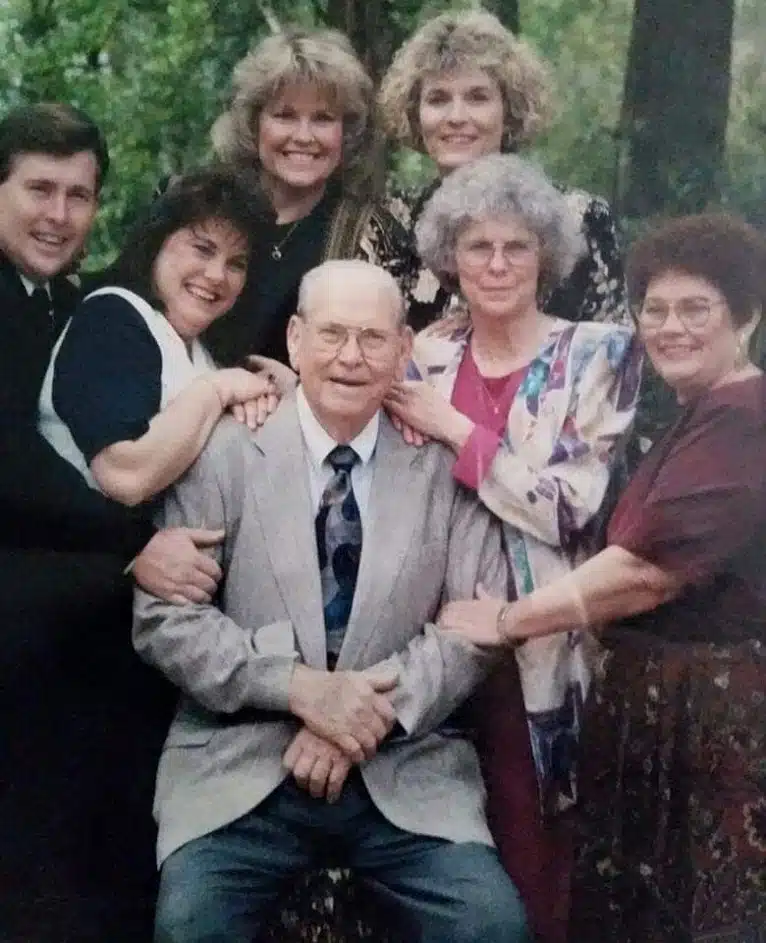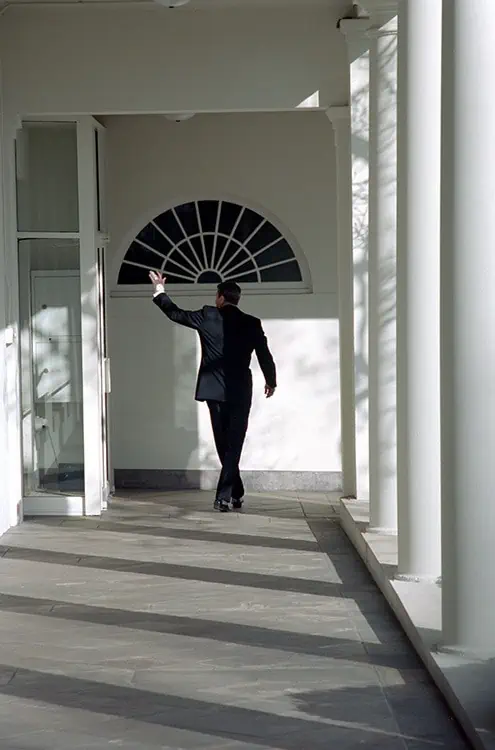Dementia runs in the family

In October, I wrote about my mother, the anchor and light of my childhood. She was not perfect but she was close enough to give me an idea of what perfection looks like, and more importantly, how it behaves. Mom developed some form of dementia in the last couple of years of her life. She suffered from night terrors, Sundowners syndrome, and memory loss. To her credit, she never let go of the memories that told her who we were. She knew her kids, her grandkids, and her great-grandkids, and she invested what was left of herself in them whenever she was afforded the opportunity.
It was hard to see her mentally struggle and waste away.
Mom’s father, the man I called Big Granddad, also suffered from dementia in his final years. His was much more severe than Mom’s. He was also older when he developed it.
He was 86 years old when he died.
Preceding him in death by just more than a year was my grandmother, his wife of 67 years, the one my family lovingly called “Granky.” The first indication I had of how badly Big Granddad’s mind had deteriorated was a few hours after Granky’s funeral. He and I were sitting alone in the living room of my Aunt Dollie’s house.
“Granddad,” I said, “Granky’s funeral was beautiful. Dr. Rayburn Blair did a great job with the Eulogy, and what a good crowd we had. People loved her so much.”
A sadness I had never seen before crept into his countenance when he said, “I guess I should have been there.”
“You were there,” I assured him. “You were right there on the front row.”
The glory of sixty-seven years of faithfulness, love, and sacrifice was blown away like the feathery seeds of a Dandelion by the breath of a Summer breeze. For Big Granddad, memories fluttered like butterflies on the winds of time, sometimes lingering long enough to acknowledge them but never long enough to hold them.
This is Dementia. This is Alzheimer’s Disease.
In the ensuing months, my grandfather would become easily agitated. After he was placed in a convalescent care center, he continued to deteriorate. One time, he barricaded himself in his room and it took four men to get into the room. He had shoved furniture against the door. I don’t know how many times he fired his male nurse, telling him to get a man’s job.
Once, when my mother was visiting him (this was well before her own issues arrived), she was trying to get him to remember some of the good times with Granky. Big Granddad said she was not dead but had run off with another man. He had reverted in his mind to the early days of their marriage when she was gorgeous (she always was until her dying day) and he was insanely jealous. No one had ever been more faithful as a wife and fellow minister (Big Granddad was a Baptist preacher) than my Granky. Mom became upset and scolded her father. She told him he was wrong and never to say anything like that again. He wept.
His mind was broken and his personality altered. This faithful giant, this servant of mankind, this model of manhood was reduced by dementia to paranoia and fear.
How President Reagan handled the news about Alzheimer’s
President Ronald Reagan was a master communicator, a rugged man, and a strong leader. A few years after his second term as President of the United States, Reagan learned that he had Alzheimer’s disease. He decided to share the news with America in the form of an open letter.
My Fellow Americans,
Ronald Reagan, November 5, 1994
I have recently been told that I am one of the millions of Americans who will be afflicted with Alzheimer’s Disease.
Upon learning this news, Nancy and I had to decide whether as private citizens we would keep this a private matter or whether we would make this news known in a public way.
In the past Nancy suffered from breast cancer and I had my cancer surgeries. We found through our open disclosures we were able to raise public awareness. We were happy that as a result many more people underwent testing. They were treated in early stages and able to return to normal, healthy lives.
So now, we feel it is important to share it with you. In opening our hearts, we hope this might promote greater awareness of this condition. Perhaps it will encourage a clearer understanding of the individuals and families who are affected by it.
At the moment I feel just fine. I intend to live the remainder of the years God gives me on this earth doing the things I have always done. I will continue to share life’s journey with my beloved Nancy and my family. I plan to enjoy the great outdoors and stay in touch with my friends and supporters.
Unfortunately, as Alzheimer’s Disease progresses, the family often bears a heavy burden. I only wish there was some way I could spare Nancy from this painful experience. When the time comes I am confident that with your help she will face it with faith and courage.
In closing let me thank you, the American people for giving me the great honor of allowing me to serve as your President. When the Lord calls me home, whenever that may be, I will leave with the greatest love for this country of ours and eternal optimism for its future.
I now begin the journey that will lead me into the sunset of my life. I know that for America there will always be a bright dawn ahead.
Thank you, my friends. May God always bless you.
No one is exempt from the possibility of brain disease. Not even presidents.
“I suffer from short-term memory loss. It runs in my family. At least I think it does”¦ where are they?”
Dory from Finding Nemo
I forgot what I was saying
I find myself more forgetful these days. I struggle with words that I know and know well. I cannot find them. Sometimes, my wife, a friend, or a coworker finds the word for me and finishes the sentence. Sometimes, we have a good laugh at my expense.
I look for the keys that are here in my hand.
I tell myself while I am getting ready for the day. “Don’t forget your lunch.”
Minutes later, I forgot both my lunch and my daily medicine.
It is all fun and games. We used to joke Big Granddad about his absent-mindedness. Then his mind became absent and it wasn’t funny anymore.
I’ll make a rhyme if you’ve the time
So, I wrote this poem, which I forgot I had written but found while looking for another writing prompt I had jotted down…
I guess I let you get away
I’ve come to find you one last time
I don’t know why you wouldn’t stay
I really thought that you were mineNow I spend each lonely day
Lost somewhere inside the gray
Matters not what others say
I know I felt you slip awayI never thought about you much
Though the thinking was all you
When I was out of touch
I always knew you’d see me throughOn these empty stairs, I stand
Halfway up, halfway down
Something shiny in my hand
Aren’t they the keys I lost, and found?Am I coming? Am I going?
Don’t you know? Can’t you say?
Outside, the street light’s glowing
So I must be on my wayMy thoughts are scattered on the wind
Howling now between my ears
I don’t think they’ll come again
To assuage these awful fearsPlease don’t address this growing sorrow
With the piety of verse
Saying all is well tomorrow
When you know it’s getting worseStay as long as you can stand it
Let me hold you in my head
For we know that time’s the bandit
Wreaking havoc, prompting dreadListen close! Can you hear it?
The hollow ringing in my skull
The screaming of the Cricket
Which only other noise can dullThe morning sky has turned to gray
Matters here are now on high
At the closing of the day
Comes the sweetest bye-and-byeOne last thought before I die
Gray Matterss, copyright 2023
A word to the wise from the wisest of them all…
Remember your Creator in the days of your youth,
before the days of adversity come
and the years approach of which you will say,
“I find no pleasure in them,”
before the light of the sun, moon, and stars is darkened,
and the clouds return after the rain,
on the day the keepers of the house tremble
and the strong men stoop,
when those grinding cease because they are few
and those watching through windows see dimly,
when the doors to the street are shut
and the sound of the mill fades away,
when one rises at the sound of a bird
and all the daughters of song grow faint,
when men fear the heights and dangers of the road,
when the almond tree blossoms,
the grasshopper loses its spring,
and the caper berry shrivels””
for then man goes to his eternal home
and mourners walk the streets.
Remember Him before the silver cord is snapped
and the golden bowl is crushed,
before the pitcher is shattered at the spring
and the wheel is broken at the well,
before the dust returns to the ground from which it came
and the spirit returns to God who gave it.Futility of futilities,” says the Teacher.
Ecclesiastes 12:1-7, Berean Study Bible
“Everything is futile!”
What am I supposed to do with this?
You may be asking, “What the heck, Gene? What am I supposed to do with this besides getting depressed?
Glad you asked! I have a few ideas.
- Use your mind for good because it matters no matter what.
- Remember the memories you are making you may someday forget, but you are not just making memories for yourself. I do not typically remember my grandfather or mother the way I described them here. I remember how they impacted me when they were in full bloom, in their prime.
- Take your mental health seriously. Attend to it with diet, exercise, and healthy (and holy) mental activities.
- Take seriously the mental health of those older than you. You may be the only sanity, the only ray of hope, the only joy they have left.
- Serve God, your family, and mankind now, while you are young and able. That is how Solomon began the passage I just shared. Remember your Creator in the days of your youth.
Remember, you are not just making your own memories. You are making theirs.
The JourneyMan

